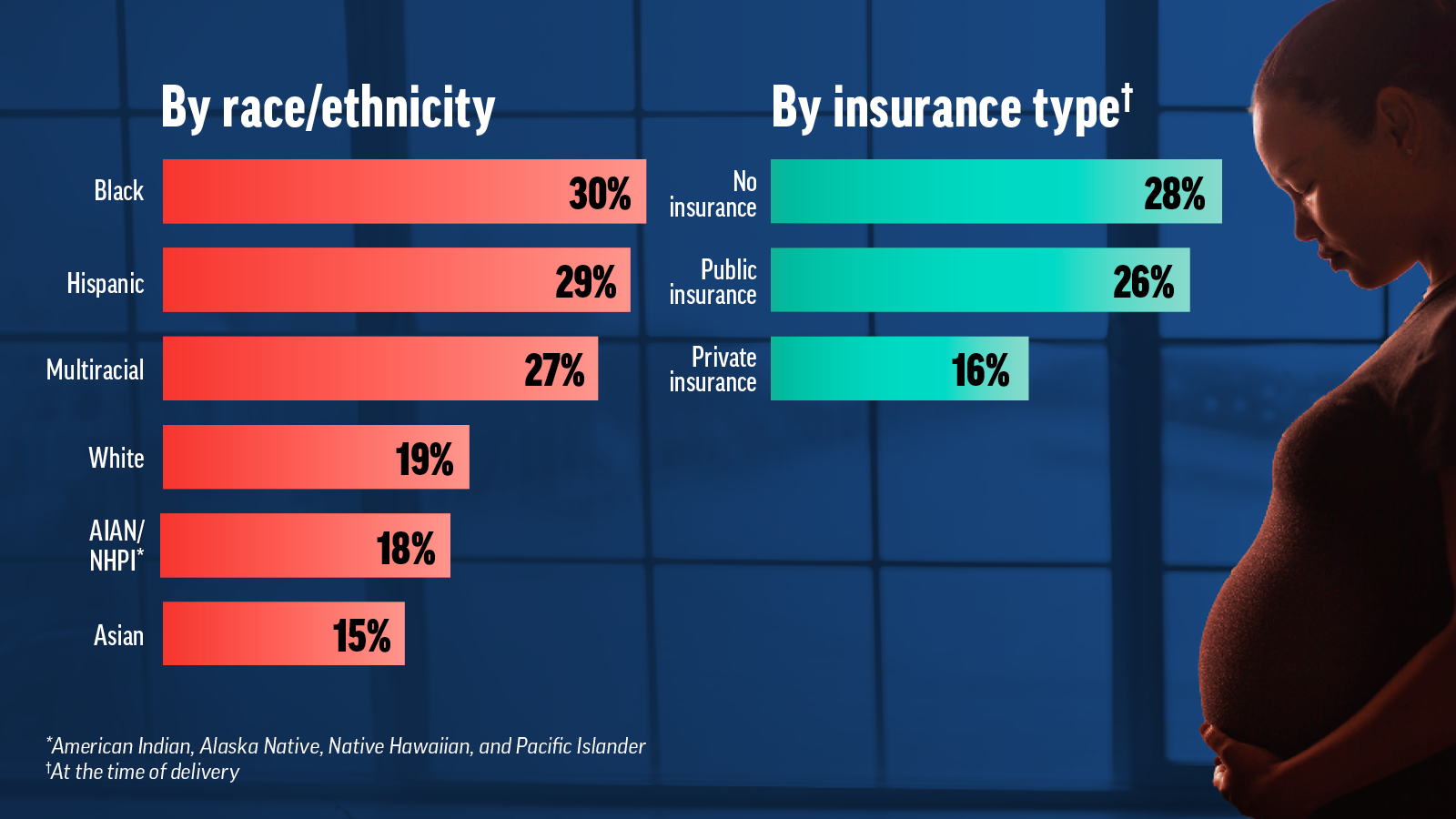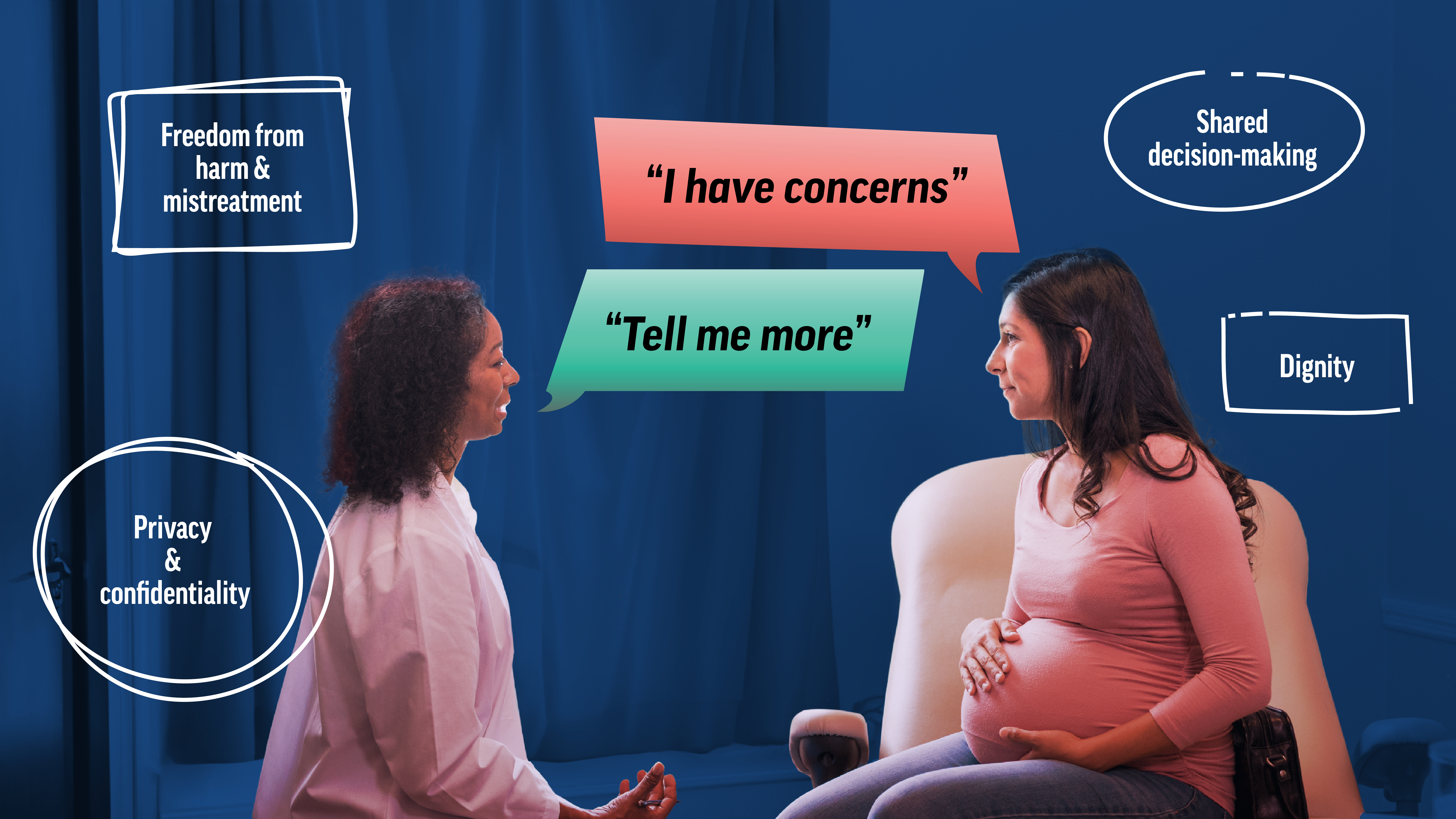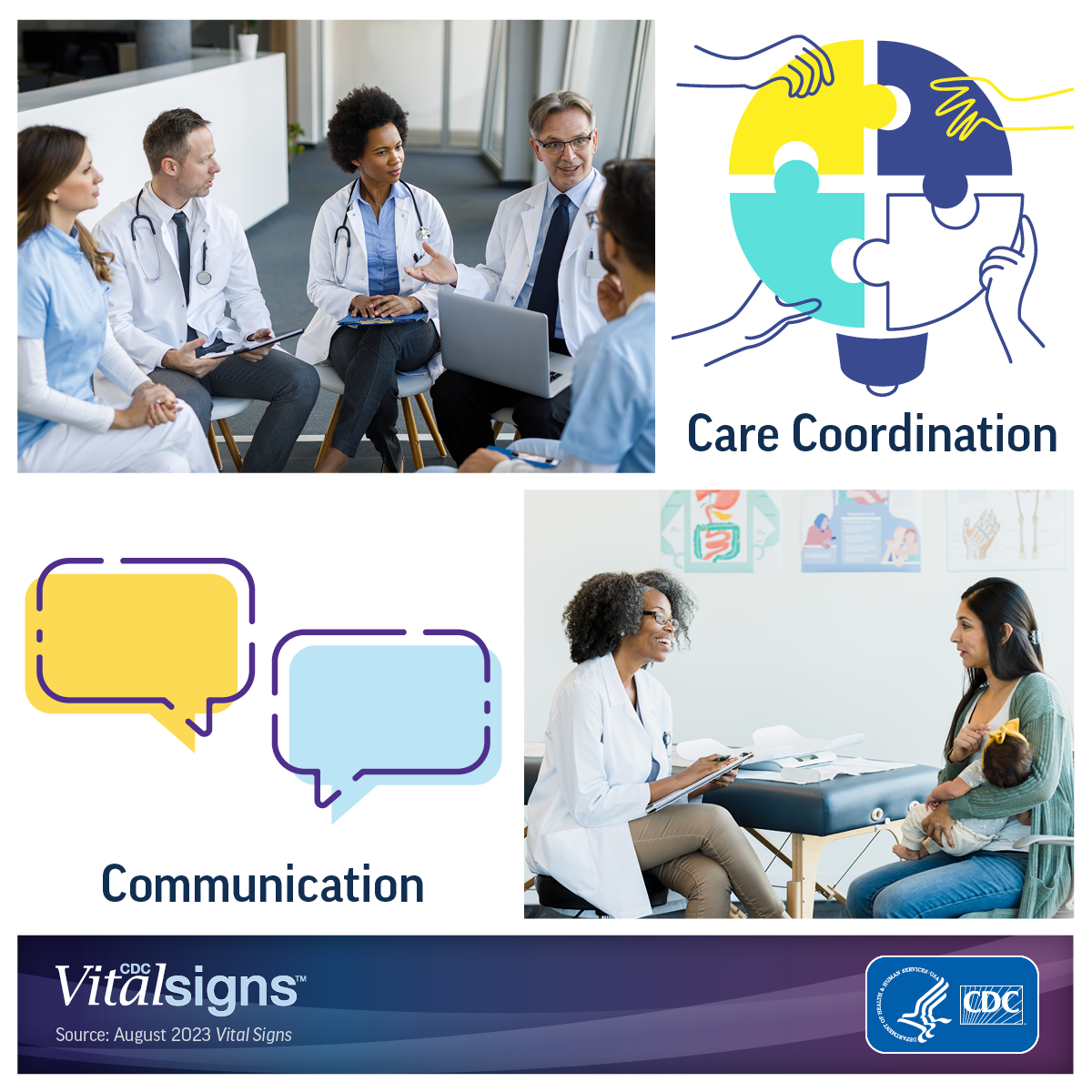Bias and discrimination in maternity care settings impact care
- Mistreatment by maternity care providers was reported most often by Black, Hispanic, and multiracial moms. People with no insurance or public insurance experienced more mistreatment during maternity care than people with private insurance.
- About 29% of women experienced discrimination while receiving maternity care. Reports of discrimination were highest among Black (40%), multiracial (39%), and Hispanic (37%) women.
- While satisfaction with maternity care overall was high (90%), satisfaction among moms who reported mistreatment was considerably lower (75%). Mistreatment and discrimination impact experiences of care.
Poor communication can worsen maternal health outcomes
- Sometimes it is hard for pregnant women to ask questions or share concerns. Maternity care providers can improve communication by creating an environment of trust.
- Providers can take time to really hear women’s concerns and have an open conversation to make sure any issues are adequately addressed.
- When there is good communication about health concerns between moms and providers, it is more likely there will be accurate, timely diagnoses and treatment for potentially life-threatening pregnancy complications.
One in 5 Women Reported Mistreatment While Receiving Maternity Care
Mistreatment was reported most often by Black, Hispanic, and multiracial moms and those with public insurance or no insurance.
Moms Deserve Respectful and Equal Maternity Care
Respectful maternity care is free from harm and mistreatment, maintains privacy, confidentiality, and dignity, and allows for shared decision-making and continuous support.
What Can Be Done
Get email updates about Vital Signs
VITAL SIGNS RESOURCES






